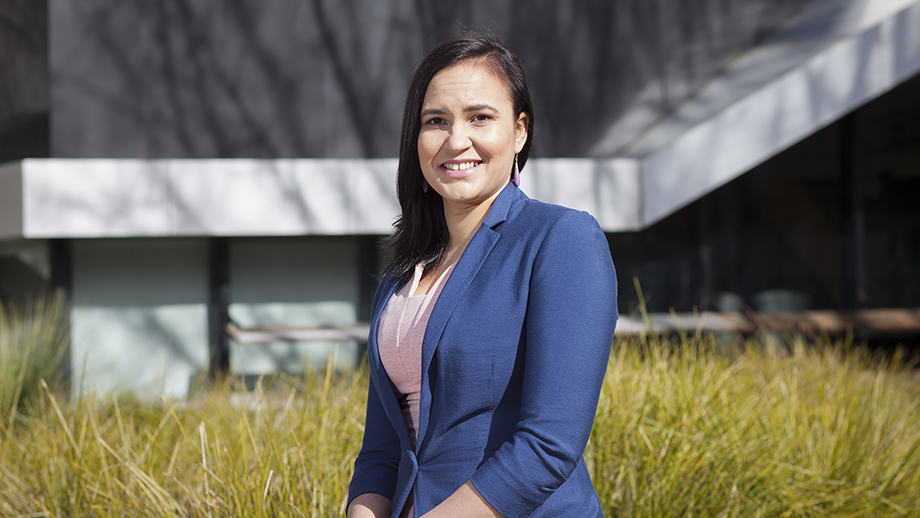A close look at biology leads graduate to find herself

It was while looking down a microscope that Minette Salmon made a huge breakthrough.
But it wasn’t a scientific discovery; it was personal. Minette started to see her own biology differently.
“Biology is the language of the human body,” Minette explains. “It’s about decoding and trying to understand that language.”
Through the lens of biology, Minette saw her own story come into focus.
“My Indigenous heritage wasn’t something that had ever been an obvious part of me before that point. I was in the Army for seven years, and being female and Indigenous isn’t easy in the military, so I didn’t see it as part of who I am.”
But after discovering a passion for biology, Minette left the military to study it full-time.
"I was unsure whether I wanted to be a full-time student again, or whether my brain would be able to cope with it,” she remembers.
Minette was encouraged by the Tjabal Centre at ANU to enrol in a Master degree and to embrace her Indigenous heritage.
“Aunty Anne and Aunty Robyn from the Tjabal Centre pushed me to succeed and made me proud to be an Indigenous woman. They made me realise that it’s not something to be ashamed of, or to feel negative about either.”
Now Minette is the first Indigenous student to graduate from the Master of Biological Sciences (Advanced).
“I've been trying to genetically engineer red blood cells to express a mutation that will stop malaria parasites getting into red blood cells, and breeding,” she explains. “If you can stop the parasite getting inside the red blood cell, that’s a potential cure for the disease.”Her research project saw her return to the microscope, this time decoding the biological language of malaria parasites at the Immunology Lab at the John Curtin School for Medical Research.
Minette now tutors other Indigenous students studying at ANU, and has sound advice for budding scientists.
“I think the thing that puts people off studying science is that it will be too hard, and they will fail. The fact is, regardless of what you do in life, everyone is going to fail at some point! I’ve certainly failed exams and tests along the way!
“I tutor some of the students at the Tjabal Centre, and this is a message I tell them. Failing at one or two assignments or tests doesn’t mean overall you won’t be successful. Keep trying, and keep at it because science is very rewarding.”
With a Master degree now under her belt, Minette is now looking forward to continuing to decode the language of biology, by working in labs with DNA, and undertaking some short-term research projects before starting a PhD.
“I’d really like to do further research on Indigenous genomics with the National Centre for Indigenous Genomics at the John Curtin School of Medical Research. They’re mapping the Indigenous genome at the moment.
“But regardless of what I do next, I would like to still make time to be a tutor at the Tjabal Centre. It’s my second home, a community, and part of my life now.”

